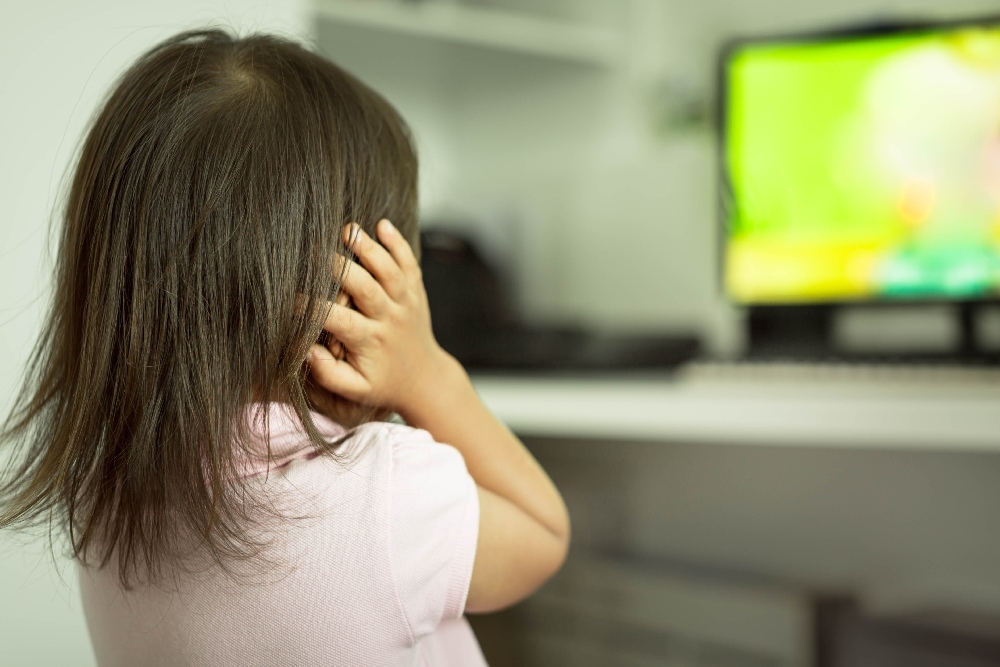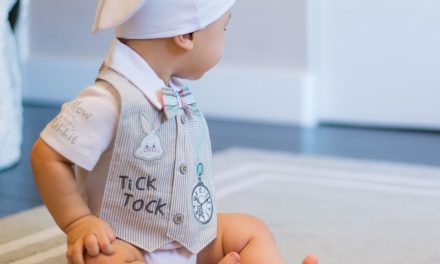Every little kid will startle and sometimes even cry when they hear suddenly loud sounds. This is most common with certain sounds that are louder than normal or are unexpected.
But, at times, you may have noticed your baby seeming anxious and reacting like this to everyday sounds as well. Before you begin to worry, read about sound sensitivity in children so you know just when to worry.
Why Is My Child Sensitive To Loud Sounds?
We all know that the world is a blaring place for tiny ears, which is why all kids react to certain noises. It is not unusual for little kids to be sensitive to loud and unexpected sounds. Although it can affect persons of all ages, including adults, sound sensitivity is most common in young children under the age of six.
It isn’t always a sign of a sensory processing disorder or illness – sound sensitivity is normal in most children up to a certain age.
The average kid may shy away from a sudden sound or become uncomfortable when confronted with loud noises. Little babies may cry or make a fuss, and toddlers may try to cover their ears with the help of their hands. They could also try to bury their faces forcefully into an adult’s lap to avoid the sound reaching their ears. These are all signs of sound sensitivity. Moreover, children with sound sensitivity have normal, and not supernormal hearing; they’re just taking their time to get used to all the sensory input.
The sounds that children commonly find troublesome include hand dryers, fireworks, bells, traffic noise, vacuum cleaners, children screaming, sirens, and alarms.
Is Sensitivity To Loud Noises A Sign Of Autism?
One of the worries parents have is that this sensitivity could be a sign of their baby suffering from autism spectrum disorders. This is true, but only to a certain extent; sound sensitivity is rarely the only symptom of autism.
Studies tell us that 30 to 90% of people who have autism either ignore sounds or overreact to them. This also applies to ordinary sights, smells, or other sensations. Researchers say that no one single type of sensory problem is consistently associated with Autism Spectrum Disorder. If you notice your child is highly sensitive to sound, visit a pediatric specialist or audiologist to get professional advice before you jump to conclusions.

Even something as simple as the TV being too loud could upset your child.
How Can I Help My Child With Sound Sensitivity?
- When your kid becomes distressed because of a sound, move them away from the source if possible, then try to comfort and reassure them. Remember to be super careful not to overreact to their response. This might lead them to escalate their reactions to the sound the next time for the sake of attention.
- Sit with them and calmly try to explain the particular source of the sound, which may help them understand there’s nothing to fear.
- A baby’s fear reaction will usually be decreased if they can exercise a little control over the sound.
- Try repeated gentle exposure to help them reduce their anxiety. Eventually, it will desensitize the auditory aspect of sensitivity towards that sound. You may record the problem sound and make them listen to the same recording at a comparatively lower volume. Then, increase the volume over a period of a few days or some weeks. You can make them practice listening to various sounds during their play. This will help break the fear and sound cycle!
- Don’t let your child be forced to stay near something that is causing them distress. This may increase their apprehension and in turn, make them associate that situation with a painful experience.
- Avoid silence! This may worsen their sound sensitivity. Completely shielding them is one of the coping strategies you must avoid.
- In extreme cases, your pediatrician may recommend sensory integration therapy.
- Finally, use earplugs only in extreme circumstances, or for a short duration. Exposure to normal and tolerable sounds is important for the brain and the ear are to develop standard sensitivity. If the use of ear defenders is long-term, the sensitivity might increase.
Conclusion
Mostly, there is no medical treatment required for sound sensitivity in children. Typically, as kids grow and develop, so does their tolerance and patience for loud noise. You simply need to lead them through it. If you ever need an emergency consultation, don’t bother with ringing up to make an appointment – just use the ImmunifyMe app. The app has teleconsultations, as well as easy appointment booking.
FAQs On Sound Sensitivity In Children
What Does It Mean When A Child Is Sensitive To Noise?
It is normal for children to be sensitive to noise since it’s a matter of their minds getting attuned to them as they grow.
How Can I Help My Child With Sound Sensitivity?
You can help your child get used to hearing different sounds, both unexpected and everyday, with gentle exposure. This will get them sensitized to the noises. Extreme cases of noise sensitivity may need sensory integration therapy.
What Is Noise Sensitivity A Symptom Of?
Noise sensitivity in children is not usually a symptom of anything unusual but is a normal part of growing up. In rare cases, noise sensitivity could be a sign of autism, but it will also be accompanied by a slew of other symptoms.






